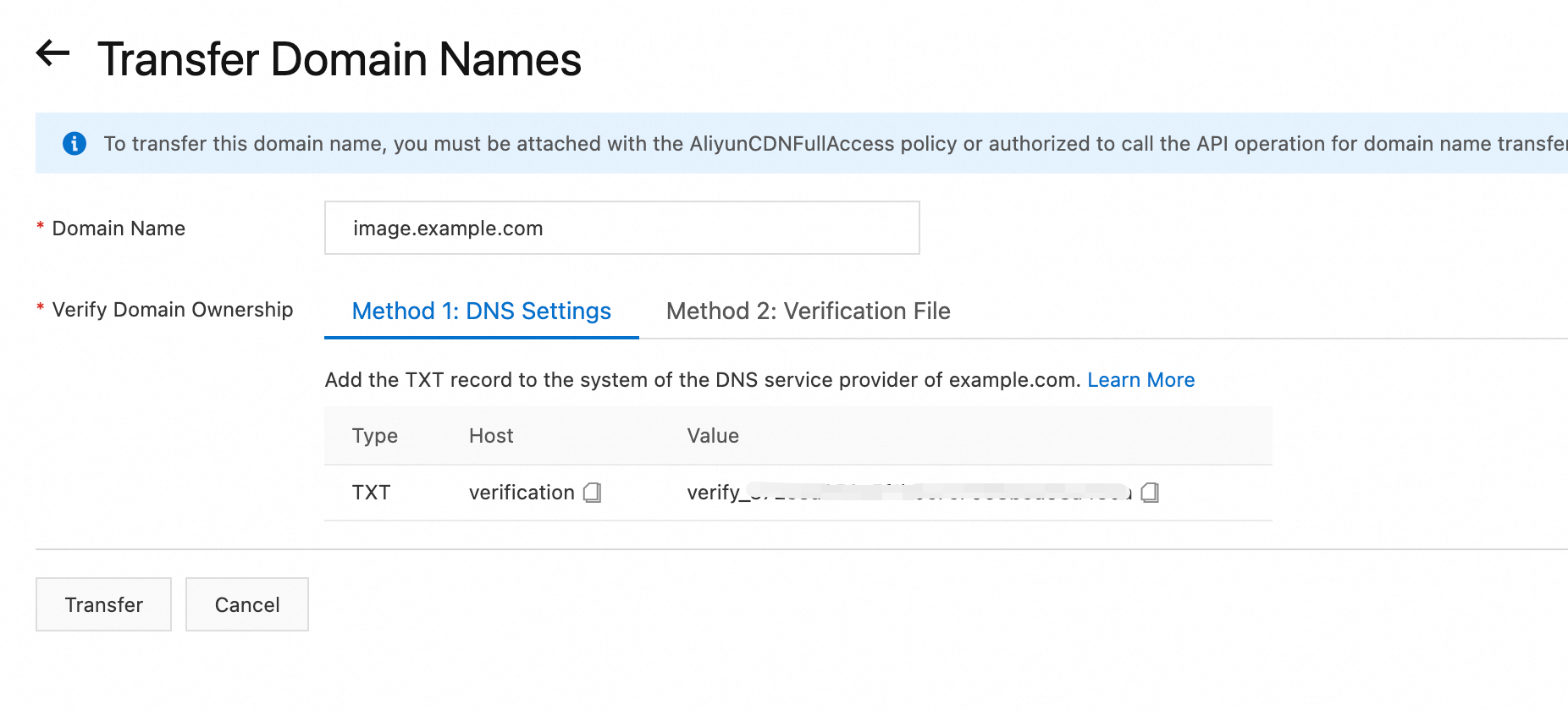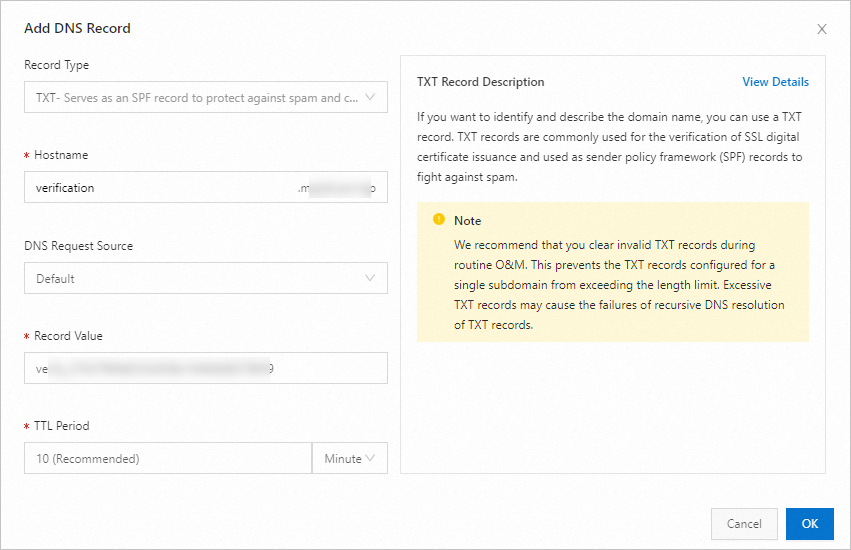Use the domain name transfer tool to transfer a domain name from one Alibaba Cloud CDN account to another.
Note about plan
The resource plans of the source account cannot offset traffic fees generated by the domain name after transfer. Resource plans cannot be transferred across accounts.
Scenarios
You can use the domain name transfer tool to transfer domain names between Alibaba Cloud accounts in the following scenarios:
You have multiple Alibaba Cloud accounts and want to transfer domain names from Account A to Account B.
When adding a domain name to Alibaba Cloud CDN, you may be prompted that it already exists. You want to transfer the domain name to your account.
If you want to transfer a domain name that is added to another service, such as ApsaraVideo Live, to Alibaba Cloud CDN, submit a ticket.
Prerequisites
Ensure both source and target accounts for the domain name transfer have no overdue payments.
Attach the AliyunCDNFullAccess policy to the RAM user if you transfer a domain name as a RAM user. For more information, see Grant permissions to the RAM user.
Make sure that wildcard domain names and exact-match domain names of the same root domain are under the same account (for example,
.aliyundoc.comandexample.aliyundoc.com). Exact-match configurations take precedence to avoid conflicts.
Notes before transfer
You can transfer only one domain name at a time for security reasons.
Disable monitoring data, logs, and operations reports for the source account. Otherwise, logs and reports continue to be delivered to the source account and billed.
Increase the domain name quota in the Quota Center if the number of CDN domain names in the destination account has reached the upper limit.
If the origin server is Alibaba Cloud OSS and the CDN domain name uses the Private OSS bucket origin fetch feature with Security Token Service (STS) tokens, authentication may fail after transfer. Switch the authentication method to permanent security tokens.
If your domain name is restricted from being transferred, you'll be notified when you trigger the transfer. Submit a ticket for more information.
Actions after transfer
Configure monitoring data, logs, and operations reports for the domain name in the new account.
Re-upload SSL certificates to the new account to receive expiration alerts; HTTPS access remains available after the transfer.
Set up resource groups and tags in the new account if these were used to manage the domain.
Procedure
Log on to the Alibaba Cloud CDN console.
In the left-side navigation pane, click Domain Names.
In the upper-right corner of the Domain Names page, click Transfer Domain Names.
Read and select the transfer notice, and then click OK.
Enter the domain name to be transferred, and complete the domain name ownership verification using one of the following methods:
Method 1: DNS resolution verification
In the Verify Domain Ownership section, click Method 1: DNS Settings.

Log on to the Alibaba Cloud DNS console.
On the Authoritative DNS Resolution page, find the root domain name
example.comof the accelerated domain name, and click DNS Settings on the right.Click Add Record, select TXT for Record Type, and fill in the Hostname and Record Value provided by Alibaba Cloud CDN in Step 1. Keep the other parameters as default.

Click OK to complete the addition.
Method 2: File verification
In the Verify Domain Ownership section, click Method 2: Verification File.
Click
verification.htmlto download the verification file.Upload the verification file to the root directory on the server of the root domain name. The server can be an Elastic Compute Service (ECS) instance, an Object Storage Service (OSS) bucket, a Cloud Virtual Machine (CVM) instance, a Cloud Object Storage (COS) instance, or an Elastic Compute Cloud (EC2) instance. For example, if the domain name is
image.example.com, you need to upload the file to the root directory ofexample.com.NoteThe Alibaba Cloud CDN backend will access the
http://example.com/verification.htmlfile link on your server for verification.If the record value in the file is the same as the record value in the verification file, the verification is successful.
Otherwise, the verification fails. Make sure that the preceding URL is accessible and the file that you uploaded is valid.
Return to the CDN console and click Transfer.
NoteIf the transfer fails, check the configuration in Step 5. Correct any mistakes and try again. If the configuration is correct but the transfer still fails, submit a ticket.